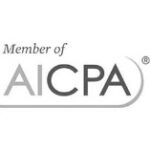Financial audits are not just about ticking off compliance boxes; they play an important role in ensuring financial transparency with key stakeholders. What this means is that by having quality auditing processes that result in solid audit outcomes, a business can build trust and increase the operational efficiency of the organization.
This article will break down some of the primary benefits of the financial audit process and discuss their role in specific industries such as healthcare. Whether you’re running a large hospital network, a private medical practice, or trying to grow a hospice care service provider, audits can help.
1. What is a Financial Audit?
First, what is a financial audit, and why does this matter? An audit is an objective, independent review of a business’s financial statements to a) get a clear and accurate snapshot of the organization’s status and b) ensure the subsequent reporting complies with specific accounting standards. An initial review culminates in audit results, which can offer management findings and recommendations for changes in operations, financial decision-making, and even, at times, changes in the accounting reporting process.
Audits are performed by certified accounting professionals (both internally and externally relative to the organization) who collect and analyze financial transactions, oversee internal controls, and report on the processes that can verify financial data reflects the true state of the business.
So, why are financial audits important? First and foremost, they offer the government (i.e. regulatory bodies) the data that it needs to show a business complies. This is quite relevant if the business is a publicly traded firm in which the management is responsible for giving investors a solid picture of the business and its financial health. Audits can help creditors of a business ensure the organization’s ability to repay any loans made to it. Last but not least, management can benefit from the auditing process as reports generated can assist in improving operations and a company’s finances.
2. Types of Financial Audits (External, Internal, IRS)
Getting more granular, there are three main types of financial audits:
- Internal: Led by internal auditors, these audits judge how well a company’s internal controls are working. They also provide benchmarks that management uses for risk management purposes and for financial reporting process improvement. Basically, internal audits show areas for improvement and for better operational and financial management.
- External: Typically required by regulators, investors, and creditors, these types of audits are run by external overseers who are charged with giving their expert and objective opinions on the accuracy of an organization’s financial statements. Depending on the size of the organization, these can be led by accounting firms with large, deep expertise, such as KPMG, Deloitte, or PricewaterhouseCoopers, or for smaller entities, more boutique and often more niche-focused firms based on industry. Walters & Associates, CPAs, for instance, has deep experience with various fields but, in particular, offer auditing services for many types of healthcare businesses, such as those that bill Medicare and Medicaid, like hospitals, home health aide organizations, and hospices.
- IRS: A third type of audit can be demanded and conducted by the Internal Revenue Service. Here, the audit focuses on compliance with tax laws and regulations. Why do these occur? There may be many reasons for this, but they are typically triggered by errors in tax return reporting, unreported or misreported income, and failures to comply with other tax regulations. (As an aside, people may think that a problem with a state tax return can cause an audit at the federal level. It’s true; these agencies do share information. And while federal tax officials will likely see if a return (or audit) at the state level indicates material changes in income or expense deductions, it won’t necessarily increase the likelihood of an IRS audit.)
Lastly, as we’ve discussed in previous articles, the IRS plans to increase audits of larger businesses, particularly complex partnerships going forward.
3. Enhancing Internal Controls
The importance of a company’s internal controls in helping to safeguard assets cannot be overstated, and audits are a way to check on these controls. They show if the organization has weaknesses in financial reporting, in their billing systems, or other operational workflows. This is notably true for healthcare provider companies, where controls impact patient billing accuracy, reimbursement claims, and cash flow. These controls help prevent fraud or misappropriation of funds. For some businesses, audits can find if there are any discrepancies in payments, such as duplicates, or if there are any unauthorized expenses. This can be a common problem in situations such as clinics managing big volumes of insurance claims and reimbursements.
4. Financial Audits Help Ensure Regulatory Compliance
In certain industries, such as healthcare, financial audits can help, not hinder, firms from staying compliant with state, federal, and industry-specific regulations. First, GAAP, or generally accepted accounting principles, must be adhered to. The revenue reporting methods for healthcare companies (often non-profits) have to be correctly employed. So, an entity such as a non-profit hospice has to comply with IRS guidelines to maintain tax-exempt status. Hospitals are also required to show accurate cost reporting so they can correctly and speedily receive Medicare and/or Medicaid reimbursements. Private practices like occupational and physical therapists, counseling centers, or home health aide agencies need to ensure proper revenue recognition for direct patient payments and insurance claims.

5. Fraud Detection & Prevention
Audits can both identify and help prevent fraud by acting as a deterrent. It may be a sad fact, but the threat of thorough scrutiny may be necessary to maintain ethical behaviors. Auditors can detect red flags that indicate wrongdoing in various ways, such as uncovering irregularities in payroll. Known as ghost employees, non-existent workers can be reported on payroll records so individuals can collect wages through these false entries. Another example is unusual patterns in expense reporting, which can be manipulated to improperly claim tax deductions that the business is not entitled to.
6. Automating the Financial Audit
Technology continues to advance which has had an impact on the financial audit process. When adopting new technology, careful consideration is important because missteps in implementation can affect not only audit outcomes but also an organization’s overall financial health. Experts in the field emphasize that introducing new technology should also account for its influence on project workflows and the interactions between finance and accounting teams. Data and reports generated by these systems will ultimately be reviewed by auditors, potentially leading to unexpected and even alarming findings by year-end. It’s best to get ahead of the curve on how technology used to automate systems can also affect financial processes, including audits.
Still, automation software technologies can streamline the audit process. This includes:
- Data extraction & analysis: Analyzing large datasets takes time. Smart management can reduce that time and any effort required by selecting the right automation tools.
- Risk assessment: Like a bloodhound on the trail of a criminal, technology can spot risks and anomalies in data. This gives management the ability to focus on higher-risk areas. It can also help auditors in their work if and when they are brought into the process.
- Audit testing: Some technology can even perform audit tests for you. These will do things such as transaction testing and balance sheet verification. There are numerous programs available to help reduce the need for more onerous manual testing options.
7. Best Practices for Audits
To review, audits offer value but work most effectively when an organization is prepared so there is a smooth process and result. Some of these concepts apply to general best business practices but are essential for the audit process. Here are a few:
- As always, “quality data in” means “quality data out.” Companies must maintain high-quality and detailed financial records. This means making sure all customer billing records are right (coding medical inputs, for instance, in healthcare), payroll numbers are accurate, and expense records are well organized.
- Review all internal controls. This is another excellent best practice to follow, as having the right internal controls (with sufficient employee training to do so) will give management the ability to handle internal audits, external audits, and, importantly, any reviews required by governmental tax agencies.
- Get outside assistance from a quality accounting firm. Working closely with an accounting team that has industry-specific knowledge can go a long way in handling audits. Compliance often means dealing with ever-evolving financial regulations, something good CPAs are on top of. Having a firm at your back in getting ongoing detailed and accurate financial analyses can also help.
Audit Process: Final thoughts
Financial audits are more than a regulatory requirement—they are a vital tool for ensuring transparency, keeping trust among various stakeholders, and driving success. For healthcare businesses, audits play a pivotal role in achieving compliance, preventing fraud, uncovering strategic insights, and optimizing financial health.
At Walters & Associates, CPAs, we offer these articles to help inform our readers of what’s important to think about in their businesses regarding accounting issues. Our audit and assurance services are tailored to specific businesses and industries, such as those in the healthcare sphere.
We welcome your feedback and any questions you may have and are happy to discuss our services in detail. Please feel free to contact us.












